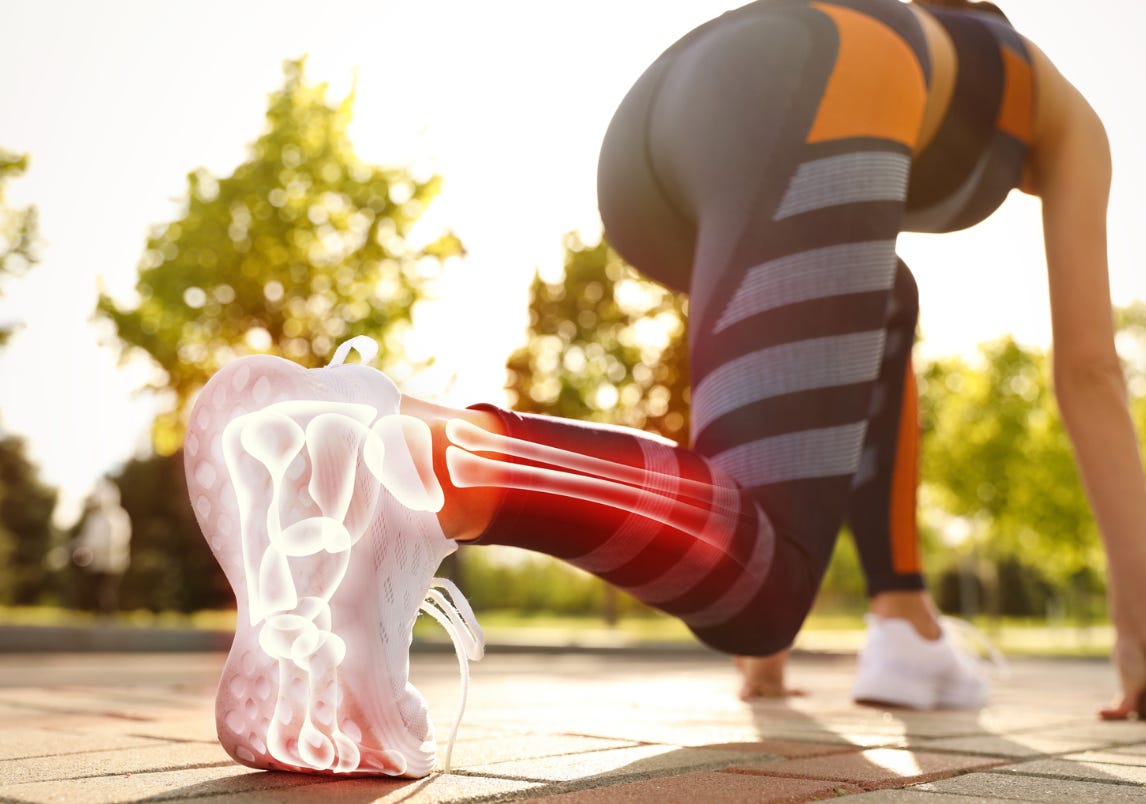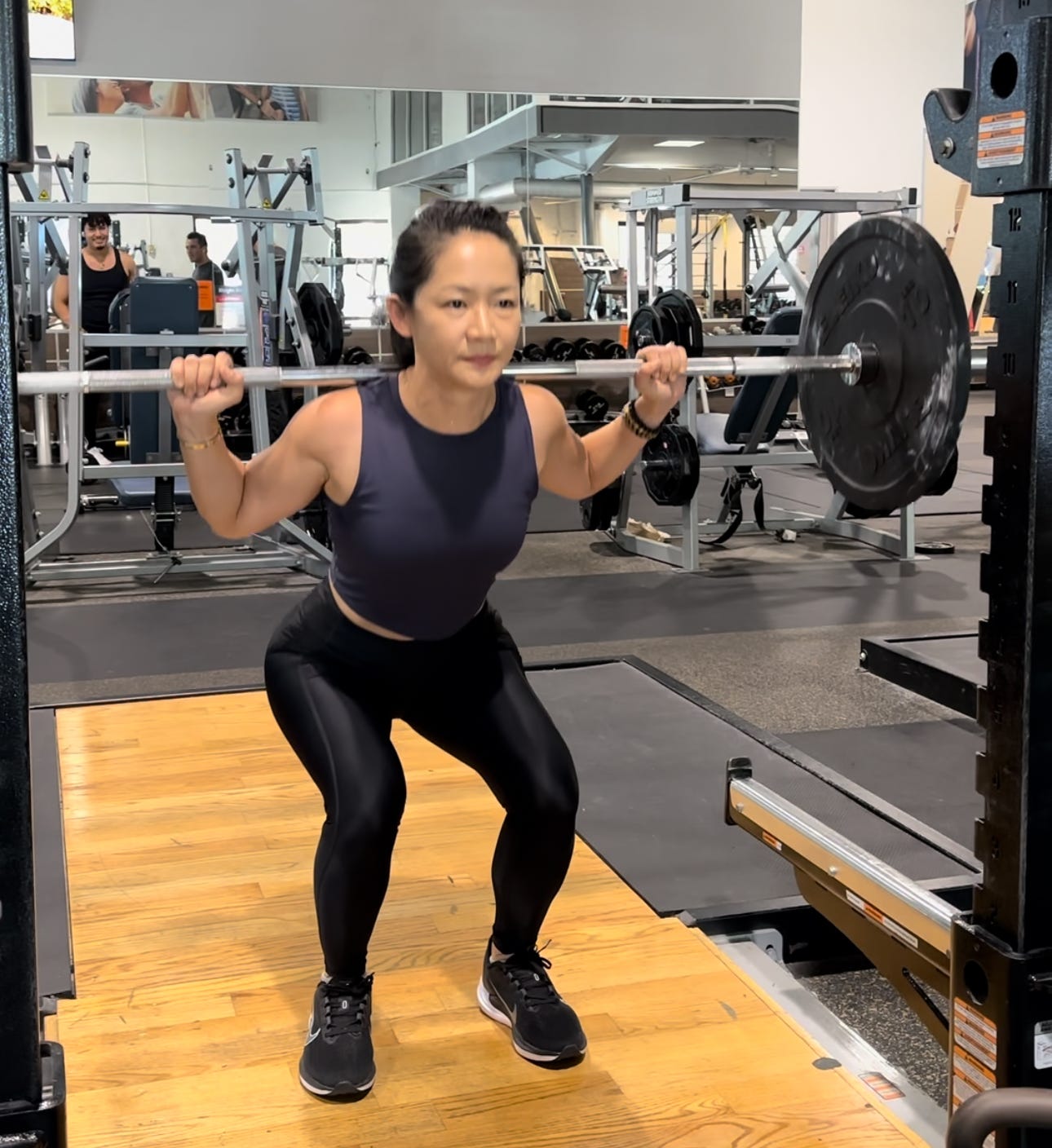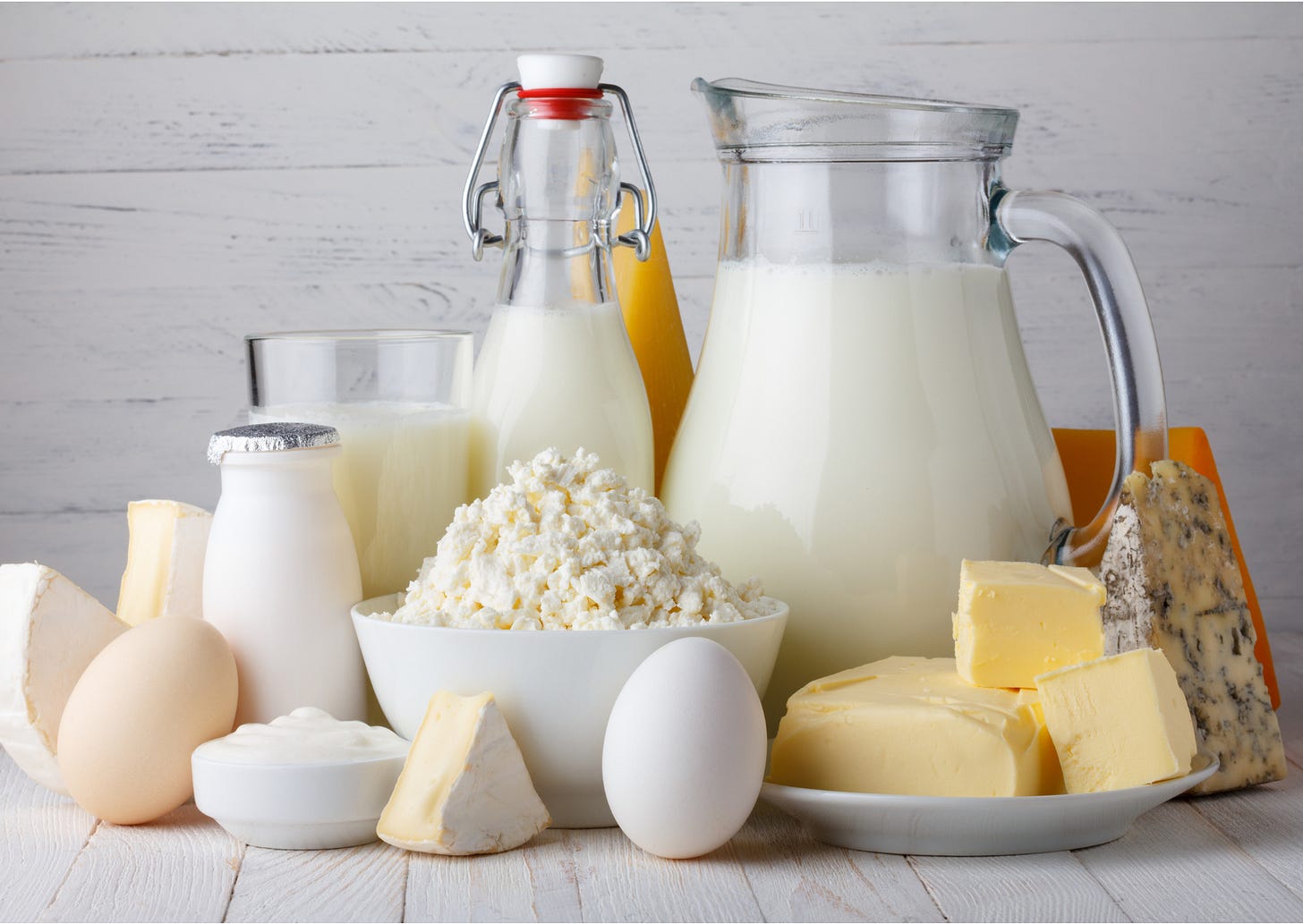Why I’m Taking Bone Health Seriously (And You Should Too)
Osteoporosis may sound like a concern for your 50s or 60s, but the truth is, every woman should be thinking about bone health much earlier.
1 in 2 women over 50 will break a bone. You might think it’s minor—nothing like cancer or heart disease—but the reality is: a hip fracture can come with a 20-30% risk of death within a year.1
And even if you survive? The loss of mobility and independence can be devastating.
I don’t know about you, but I don’t just want to live longer—I want to thrive, stay strong, and enjoy life on my own terms.
A Family History I Can’t Ignore
Osteoporosis isn’t just an abstract concept for me—it runs in my family.
My maternal grandmother had severe osteoporosis, suffered multiple falls, and ultimately passed due to complications from a fall.
My mom also has severe osteoporosis, though she’s doing everything she can to slow further bone loss. So when I hit my 40s, bone health was already on my radar.
Even so, I didn’t get serious about it until I requested a DEXA scan (a bone density test) from my doctor. The standard recommendation for this test is age 65—but in my opinion, that’s far too late.
If you have a family history or other risk factors, you don’t have to wait. You can request a scan earlier—it’s not just for postmenopausal women. Yes, you do get radiation from it, but in my opinion, the benefit far outweighs the risks.
My scan showed I was borderline osteopenic—the step just before osteoporosis. At 46. 😞 If I had waited until 65 for that DEXA scan, I have no doubt it would’ve shown full-blown osteoporosis—at which point, the main option is medication (which, to be clear, can be necessary, but I'd rather avoid if possible!).
Catching bone loss early is a game-changer because that’s when I still have time to take action and (hopefully! 🤞) prevent it from progressing. This scan was the wake-up call I needed to finally take bone health seriously, and I’m glad I got it when I did.
Looking back, I wish I had been more intentional about calcium intake as a teenager—because that’s when we build the foundation for strong bones. If you reach peak bone mass early in life, you have more to lose before hitting the danger zone. But since I can’t go back in time and undo my questionable teenage diet, what I can do is protect it now, educate anyone willing to listen—and make sure my daughter gets enough calcium during puberty when it matters most.
With estrogen levels declining from here on out, my bone density will only get worse unless I take action. So, I did what I do best—dove into research, pulled from the latest studies, and built my own proactive bone health plan, which I am sharing with you today, like:
Should you supplement with calcium?
Should you take MHT (Menopausal Hormone Therapy, or more widely known as HRT) to protect bones?
What does the evidence currently say about the benefits of MHT/HRT?
Let’s dive in! 👩✈️
My 3 pillars to bone health
1) Getting enough calcium
Calcium is critical for bone health, but the conversation around calcium supplements is nuanced, and it’s had a bit of bad press.
Here’s what the research tells us so far:
Calcium supplements don’t reliably reduce fracture risk in people already getting enough calcium from their diet.2
But if you’re NOT getting enough calcium in your diet, supplementation may be beneficial (and, in my opinion, necessary).
Some studies suggest supplements may increase cardiovascular risk (due to arterial calcification) and kidney stones - but in my opinion, it depends on the type of calcium you take and whether you take it with other nutrients that are important for bone health like D3/K2, and minerals like boron and magnesium WITH your calcium.3
I personally take a high-quality calcium supplement (additional 10% off via this link) every day - I get about 500-600mg through my diet because I’m dairy free - so I just need a ‘top up’. P.S. I don’t take the strontium from them. I ONLY use the Algecal Plus.
If you do supplement with calcium, the consensus is that our bodies CANNOT absorb that much calcium in one go, so skip the super high doses and divide it up. Be sure to speak to your doctor about an appropriate dose for you and stay under 500mg at any one time e.g. if your doctor wants you to take 1000mg a day, take 500mg in the morning, and 500mg in the afternoon.
How do you know if you are getting enough calcium?
There is only one way… Track it.
For one week, write down everything you eat and then input it into a nutrition tracker (MyFitnessPal or Cronometer work well). Then, add it all up and calculate your daily average calcium intake across the week.
👉 How much calcium do you need? Well, it kind of depends on where you live!
It’s interesting to me how different the recommendations are in the UK (where I trained as a medical doctor), and the US.
The UK recommends 700mg/day for adults.
The US recommends 1000mg/day for women under 50, and 1200mg/day (!) for women over 50—significantly higher than the UK guidelines.
I am a creature of habit, so I follow the UK guidelines because that’s where I got my medical training. You, however, should work with your doctor to determine what’s right for you - I cannot tell you that. But I am here to provide information you can take into consideration and share what works for me.
Should You Get Your Calcium from Dairy?
We’ve all heard “milk does a body good,” but does it really?
Dairy is a great source of calcium— if your body tolerates it well. But it’s also one of the most common food sensitivities, and many people react to it without realizing it.
Instead of a dramatic allergic reaction, dairy intolerance often shows up as more subtle, lingering symptoms: bloating, acne, headaches, nasal congestion, or inflammation. Because these symptoms are low-grade and not immediate, it’s easy to miss the connection.
Not sure if dairy works for you? Talk to your healthcare provider about eliminating it for three weeks. Keep a food + symptom journal to track changes—if your symptoms improve and then return when you reintroduce dairy, you might have your answer.
Dairy is not the only way to meet your calcium needs. I’ve raised two kids who are dairy-free. You just have to be more cognizant about WHERE you are getting your calcium. Plant-based sources like leafy greens (especially collard greens), sesame seeds (e.g., tahini), and fortified soy milk can provide plenty of calcium.
A large BMJ study of 60,000+ people actually linked higher milk consumption with increased fracture risk 🤯 - possibly due to the pro-inflammatory effects of D-galactose, a sugar found in milk. While it’s not conclusive, it’s worth considering and ties into point #1.4
Calcium Alone Isn’t Enough
Strong bones require more than just calcium. Here’s what else I focus on:
Protein – Bone is 50% protein by volume! I’ve increased my intake to 1g per pound of ideal body weight to support muscle and bone health by adding in a clean protein powder daily.
Collagen – Early research suggests 5g of Fortibone, a specific type of collagen, may benefit bone density. However, I have concerns around purity, as a Clean Label Project found widespread contamination of collagen with heavy metals. So, it is not a regular supplement that I consume (yet). That could change if I find a clean one I like.
Vitamin D3 + K2 – D3 helps absorb calcium, and K2 directs it to the bones (instead of arteries). I test my D3 levels every fall to adjust my intake accordingly. The calcium supplement I take already contains D3/K2 so I don’t take a separate one.
Magnesium – Helps activate vitamin D and supports bone formation. I supplement depending on my diet and stress levels.
📢 P.S. Want to know other less-toxic products I use in my home? Click here! ⭐️
2) Menopausal Hormone Therapy (MHT)
We know that MHT (some call it HRT) - basically, where doctors prescribe and replace the hormones that decline during menopause, like estrogen- can help with bone density, especially when taken early as prevention. It has been somewhat unfairly villainized due to the Women's Health Initiative, where the study was done on older women who also had co-morbidities, using certain forms of synthetic hormones that carried higher risks.
The medical community is starting to have a change-of-heart moment with HRT, but there is still A LOT of confusion out there, with claims that are simply not backed up by science.
Can it be helpful? Yes - when used appropriately.
Is it the panacea and the cure to ALL menopausal women’s problems like social media will have you believe? No.
Here’s where the science is at so far:








